Google accuses Microsoft of antitrust violations in Cloud Market
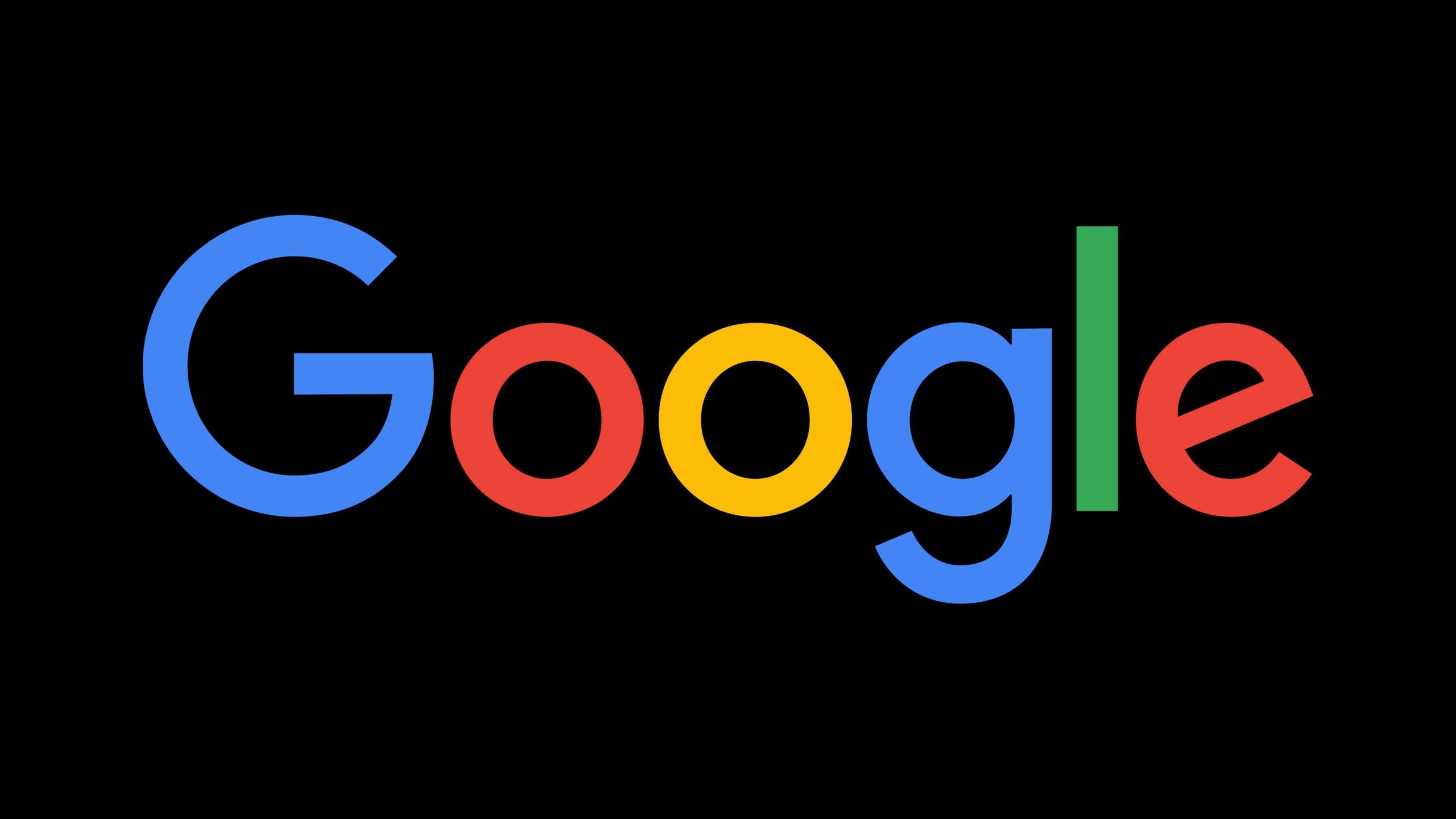
Key Points:
- Google has filed a complaint with the EU accusing Microsoft of unfair licensing practices for its Azure cloud services.
- Microsoft is alleged to be making it difficult and expensive to use Windows Server and Office products on non-Azure cloud infrastructure.
- This complaint comes after Microsoft settled with an industry group over similar concerns.
Google’s Complaint
Google has taken a significant step against Microsoft, accusing the tech giant of anticompetitive behavior in the cloud market. The company has filed an antitrust complaint with European Union regulators, alleging that Microsoft’s licensing terms for its Azure cloud services are unfair.
According to Google, Microsoft’s licensing practices make it difficult and expensive for customers to use Windows Server and Office products on cloud infrastructure providers other than Azure. This effectively gives Microsoft a significant advantage in the market, as customers may be discouraged from using competing cloud services.
Google’s complaint is particularly concerning given the growing importance of cloud computing in today’s digital world. As more businesses and organizations rely on cloud-based services, the market must remain competitive and fair.
Microsoft’s Response
Microsoft has responded to Google’s complaint by asserting that it has already addressed similar concerns raised by other European cloud providers. The company points to a recent settlement it reached with an industry group as evidence of its willingness to cooperate.
However, Google’s complaint suggests that Microsoft’s previous efforts to address these issues may not have been sufficient. The company’s allegations raise serious questions about the fairness of Microsoft’s practices and their potential impact on the cloud market.
Ongoing Scrutiny
In addition to Google’s complaint, Microsoft is facing antitrust scrutiny in other regions as well. The UK’s competition watchdog is investigating Microsoft’s and Amazon’s cloud licensing practices, while the Federal Trade Commission in the United States is examining the AI investments of these companies and their links to cloud services.
The growing scrutiny of Microsoft’s cloud practices highlights the importance of ensuring a level playing field in this rapidly evolving market. As the demand for cloud-based services continues to grow, consumers and businesses must have access to a variety of options from competitive providers.
Google Updates: Chat sidebar revamp, TV streamer feedback, and Messages redesign

Google has rolled out several updates across its services, including a revamped Google Chat sidebar, a feedback survey for Google TV Streamer users, and an upgraded interface for Google Messages. These updates aim to improve functionality, customization, and user experience across the platforms.
Google Chat: Sidebar Customization with Custom Sections
Google Chat’s web interface now includes custom sections in the sidebar, offering users more control over organizing their conversations. This redesign introduces a unified navigation experience and flexibility for users to structure the interface as per their preferences.
Key Features of the Sidebar Update
- Custom Sections Creation
- Users can create new sections by navigating to Direct Messages or Spaces, hovering over the three-dot menu, and selecting Create new section.
- Conversations from Direct Messages, group chats, and Spaces can be moved into these sections using drag-and-drop or the Move conversation option.
- Enhanced Navigation
- All sections are unified into a single scrollable list, allowing smoother navigation.
- Users can view top conversations, expand sections to access older chats, and use a new “Show all” option for browsing conversations.
- Additional Sidebar Features
- Adjust the size (height) of sections.
- Reorder sections by dragging them up or down.
- Toggle an Unread filter to focus on messages requiring attention.
- Quickly start new messages from the three-dot menu.
- New Default Section: Apps
- A dedicated section for app integrations has been added to the sidebar.
Mobile and Rollout Details
While these features will be reflected in the Android and iOS versions of Google Chat under a “Sections” tab, creating and managing custom sections remains exclusive to the web. The update will roll out gradually to all Google Workspace customers, Workspace Individual subscribers, and personal account users in the coming weeks.
Google TV Streamer Survey: Gathering User Feedback
Google is reaching out to users of the Google TV Streamer (4K) via surveys to better understand their experience. The survey focuses on usability, design, and performance, highlighting areas for potential improvements.
Key Survey Questions
- User Satisfaction: Participants rate their likelihood to recommend the device on a 0–10 scale.
- Purchase Decision: Google explores why users chose the TV Streamer over competitors like Roku, Apple TV, or Amazon Fire Stick.
- Common Issues Reported:
- Problems with Wi-Fi setup or remote functionality.
- Difficulties in adjusting settings via the Home App.
- Slow navigation, casting issues, or insufficient storage for updates.
- Voice control or “Find my remote” features not working.
User Insights
The survey also gathers feedback on how users perceive the design and ease of using the device, as well as their satisfaction with features like smart home integration and storage capacity.
Google Messages: Merged Camera and Gallery Interface
Google Messages is testing a new design for its media picker, merging the camera viewfinder and gallery into a single fullscreen interface. This update is also rolling out the ability to send media in Original quality.
Changes in the Media Picker
- New Fullscreen Interface
- Tapping the Gallery icon now opens a fullscreen UI with the live camera viewfinder at the top and a gallery section below.
- Users can swipe to expand the gallery into a full grid or access the system photo picker through the “Folders” option.
- Simplified Media Quality Settings
- Users can select between two quality options before sending:
- Optimize for Chat: Reduces size for faster sending and less data usage.
- Original Quality: Sends images and videos at full resolution, marked by an HD+ icon.
- The “Send photos faster” toggle in Settings will be removed once this feature is widely available.
- Users can select between two quality options before sending:
- Streamlined Media Sending
- After selecting or capturing media, users can preview it in a new interface with options to write captions and confirm the recipient.
Current Rollout Status
This redesign is currently available in beta (version 20241118_03_RC00) and will be gradually rolled out to all users.
Conclusion
Google’s recent updates focus on empowering users with more customization, improved design, and better functionality. Whether through Google Chat’s flexible sidebar, TV Streamer feedback surveys, or Messages’ enhanced media-sharing options, these changes aim to deliver a seamless and user-friendly experience across platforms.
Android
Google cancels Pixel Tablet 2 amid profit concerns and Android 16 aims to supercharge Gemini’s app control

Google Drops Pixel Tablet 2 Plans Over Profitability Issues
Google has reportedly decided to cancel the Pixel Tablet 2, originally slated for release in 2025, due to concerns about its financial viability. The original Pixel Tablet, launched in 2023, was expected to have a successor, with rumors even hinting at plans for a third-generation device (codenamed “Kiyomi”) targeted for 2027.
What Could Have Been: Pixel Tablet 2 Features
The Pixel Tablet 2 was in its early development phase. It was rumored to feature thinner bezels and a first-party keyboard cover with a built-in touchpad, offering enhanced functionality. A 5G variant was also reportedly in the works. However, internal evaluations suggested the product might struggle to achieve profitability, leading Google to halt the project.
Despite the setback, there is no indication that Google has entirely abandoned large-screen devices. Reports suggest that work on a Tensor G6-powered Pixel Tablet for 2027 might still be in progress. Owners of the current Pixel Tablet can rest assured that their devices will continue receiving software updates.
Android’s Commitment to Large Screens
Google remains invested in optimizing Android for large-screen devices, including tablets and foldables. Features like desktop-style windowing, expected to roll out in Android 15 QPR1 this December, signal ongoing development for better multitasking and productivity on bigger displays.
Additionally, Google’s rumored efforts to unify ChromeOS and Android could enhance large-screen support by enabling seamless desktop-level interactions on Android devices.
Android 16 and Gemini: The Future of App Control
Google is betting heavily on its AI-driven Gemini chatbot, aiming to integrate it deeply across its ecosystem. Currently, Gemini serves as the default assistant for many devices, but its ability to control Android apps has been limited. This could change significantly with the release of Android 16, which introduces a new framework designed to let services like Gemini perform tasks directly within apps.
Gemini Extensions and Their Limitations
At present, Gemini Extensions allow the AI to interact with external services like Google Maps, YouTube, and Google Workspace. These extensions pull data from backend APIs but don’t enable direct control over Android apps. For instance, Gemini can fetch flight details using Google Flights but cannot navigate or book flights directly within the app interface.
While extensions like “Utilities” offer basic control through predefined actions, they lack scalability. Many apps don’t provide public APIs, and relying on screen reading or accessibility inputs would result in inconsistent performance.
Android 16’s Game-Changing API: “App Functions”
Android 16 addresses these challenges with a new feature called “app functions.” According to Google’s developer documentation, app functions are specific pieces of functionality that apps expose to the system. For example, a food delivery app might create an app function labeled “orderFood,” which Gemini could use to initiate an order.
This functionality works by defining app-specific services accessible only to system-level processes. Permissions like EXECUTE_APP_FUNCTIONS and EXECUTE_APP_FUNCTIONS_TRUSTED regulate access, ensuring security and reliability. While these permissions are currently limited to system apps like the Google App and Android System Intelligence, they allow AI systems like Gemini to perform actions inside third-party apps.
A Leap Beyond Google Assistant
The app functions framework could enable Gemini to achieve what Google Assistant never fully managed: seamless multitasking across apps. Imagine using natural language to control apps, schedule tasks, or complete complex workflows. For example, users might book a hotel, order food, or respond to messages—all through voice commands or conversational inputs.
This vision aligns with Google’s 2019 promise of a “new Google Assistant” capable of orchestrating tasks across multiple apps. Android 16’s innovations could finally make this vision a reality, transforming Gemini into a versatile AI agent for Android devices.
Challenges and Adoption
The success of this system will depend heavily on developer adoption. App developers will need to implement app functions to unlock Gemini’s full potential. If widely embraced, this feature could redefine how users interact with Android apps, making AI-driven multitasking and app control a central part of the Android experience.
Conclusion
While the cancellation of the Pixel Tablet 2 marks a step back for Google’s hardware ambitions, the advancements in Android 16 signal exciting possibilities for the future. By empowering Gemini with robust app control capabilities, Google is paving the way for smarter, more intuitive interactions with Android devices. The coming years could see AI becoming an indispensable part of how we use smartphones and tablets.
Android
Google Phone app enhances scam call reporting and new Chromecast update rolled out

The Google Phone app is steadily becoming more user-friendly, especially when dealing with spam and scam calls. In a recent update, Google has introduced and is refining features to empower users to report fraudulent calls more effectively. Meanwhile, a fresh update for the Chromecast with Google TV has begun rolling out, keeping the device optimized as Google preps for larger changes.
Google Phone App: Smarter Tools for Scam Reporting
The Google Phone app has long been a reliable tool for blocking unwanted calls, but it’s taking scam call reporting to the next level. Users can already block or report spam calls directly from the call log by long-pressing an entry and selecting “Block or report.” From there, you can classify the call as either spam or scam and choose whether to block the number. However, this process currently sends minimal context to Google.
An upcoming update is set to introduce a detailed feedback mechanism. Version 155.0.697690833-publicbeta of the app hints at a future feature where users can provide additional insights about scam calls. This update may include:
Enhanced Reporting Options
When reporting a call as a scam, users might see a multi-select menu with questions like:
- What did the scammer ask for?
- Personal information (e.g., full name)
- Passwords
- Electronic payments
- App downloads
- “Not applicable” or “Something else” (with a text entry option)
- What did the scammer pretend to be?
- Government agencies (e.g., FBI, IRS, Social Security Administration)
- Friends or acquaintances
- Law enforcement (e.g., police)
- “Not applicable” or “Something else” (allowing for further details)
This information will be reviewed by Google and could potentially be used to warn other users about known scam numbers or their tactics.
Lookup Button Gets Better Placement
The update also tweaks the Lookup button, which helps identify unknown numbers. While this button has existed in the app, it is now visible within the Google Contacts app when accessed through the Phone app. A banner labeled “Contact info from Phone” further clarifies the context.
Although these features are still in development and not yet available for public use, they highlight Google’s ongoing efforts to combat spam and scam calls.
Chromecast with Google TV: Latest Update Rolling Out
Google is also rolling out a new update for the Chromecast with Google TV, continuing its commitment to improving performance and security.
Update Details
- Version: STTL.240812.006.N1 (upgraded from STTL.240812.006)
- Size: 59.48 MB (smaller than October’s 83.01 MB patch)
- Patch Level: September 2024 (still based on Android 12)
- Changes: General bug fixes and performance improvements.
This marks the eighth update for Chromecast with Google TV in 2023, following monthly patches since February. While these incremental updates focus on stability, they pave the way for a bigger milestone: Android 14.
What’s Next for Chromecast?
The Android 14 update is expected to bring a significant feature called “Home runtime”, enabling Chromecast devices to function as hubs for Matter smart home devices. Google has until the end of the year to roll out this transformative upgrade, and this recent patch could be preparing the device for the transition.
How to Update Your Chromecast
To ensure you have the latest version:
- Navigate to Settings on your Chromecast with Google TV.
- Go to System > About > System update.
- Follow the prompts to install the update.
Conclusion
Google’s latest improvements for the Phone app and Chromecast with Google TV showcase its focus on user experience and security. With smarter scam call reporting on the horizon and updates ensuring devices stay optimized, Google continues to lead in enhancing everyday tech. Stay tuned as these features and updates roll out to users worldwide!
-

 Apps9 months ago
Apps9 months agoGboard Proofread feature will support selected text
-
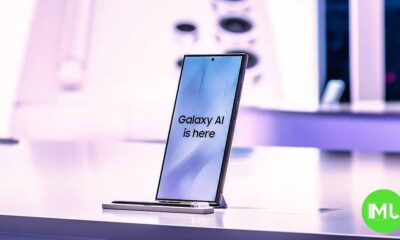
 News9 months ago
News9 months agoSamsung USA crafting One UI 6.1.1
-

 News8 months ago
News8 months agoBreaking: Samsung Galaxy S22 may get Galaxy AI features
-
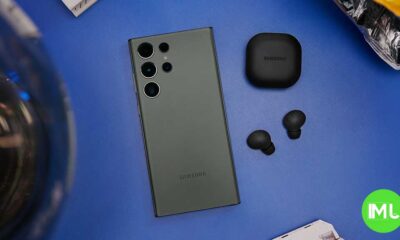
 News8 months ago
News8 months agoSamsung Galaxy S23 Ultra with One UI 6.1 and all S24 AI features revealed
-

 News9 months ago
News9 months agoOne UI 6.1 Auracast (Bluetooth LE Audio) feature coming to many Samsung phones
-

 News9 months ago
News9 months agoSatellite SOS feature coming to Google Pixel phones, evidence leaked
-
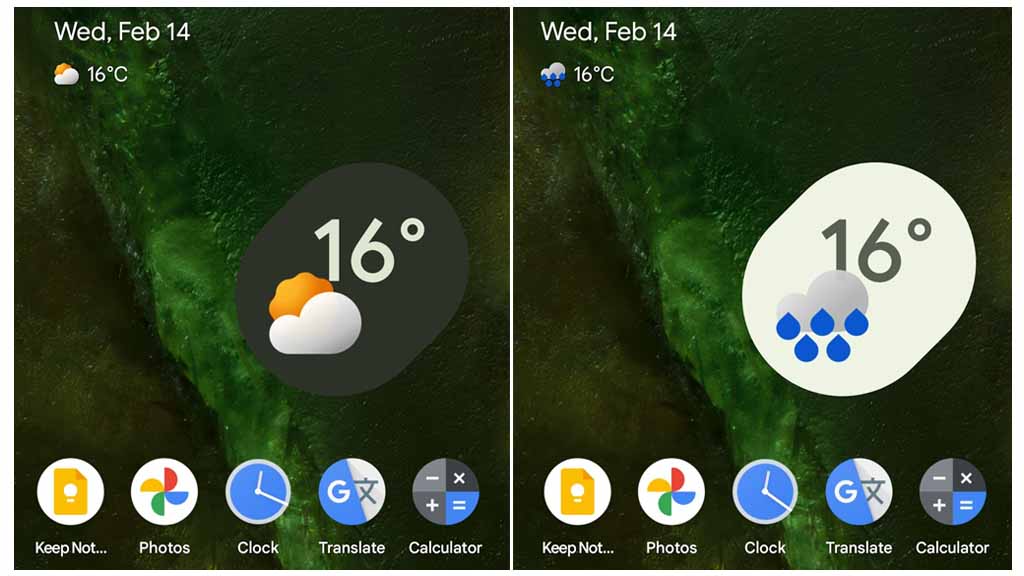
 Apps6 months ago
Apps6 months agoGoogle’s fancy new Weather app is finally available for more Android phones
-
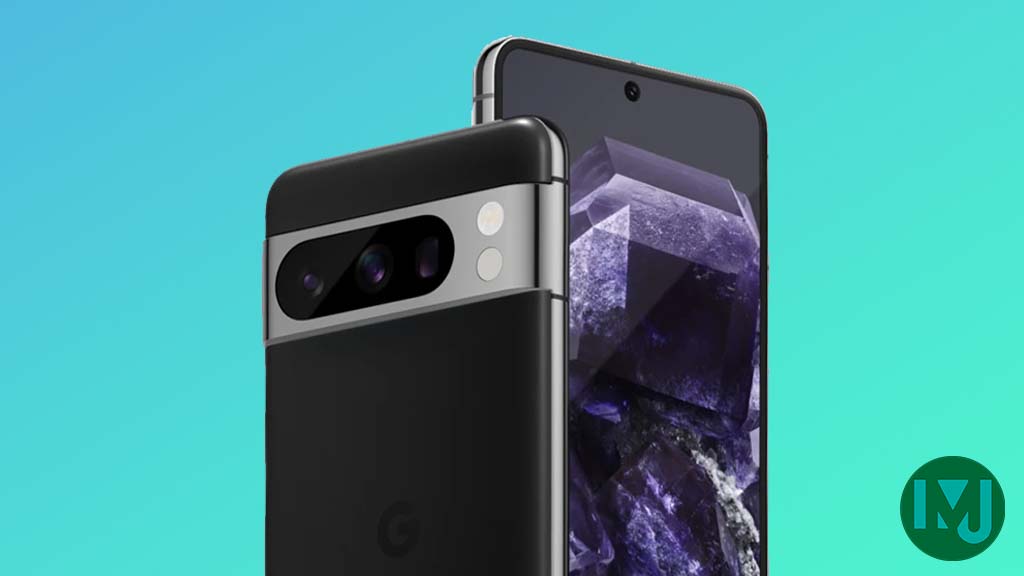
 News9 months ago
News9 months agoGoogle Pixel evolves as Europe’s third best selling flagship




